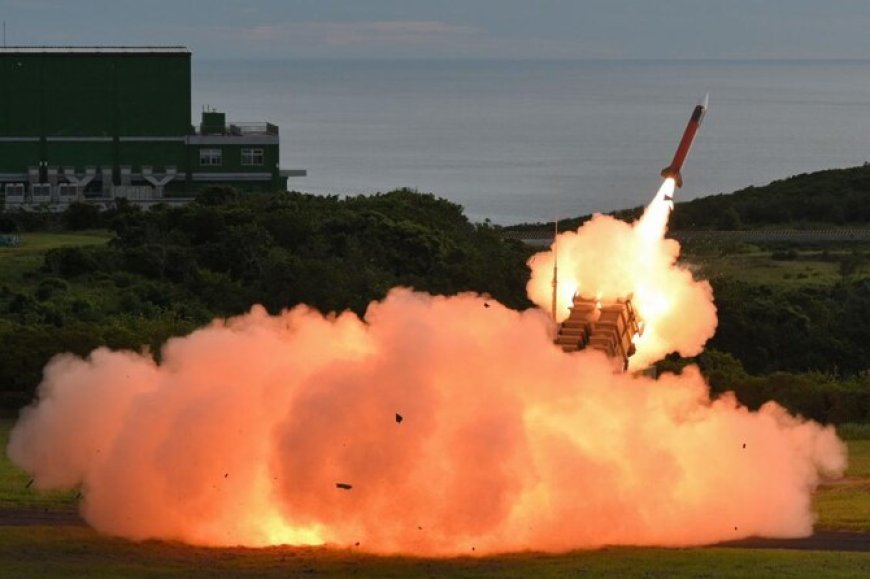Taiwan's military conducted high-stakes missile drills at the Jiupeng base in southern Pingtung County on Tuesday, simulating the interception of enemy fighters and munitions. The exercises, which come amid increasing military pressure from China, underscore Taiwan's commitment to bolstering its defense capabilities as it faces growing threats from Beijing.
During the drills, Taiwan fired domestically produced Sky Bow III missiles alongside U.S.-made Patriot II missiles, marking a significant display of the island's air defense systems. The exercises, aimed at enhancing "combat effectiveness," were the first in over a decade where reporters were granted access to the highly sensitive test site, which is also home to the government-run National Chung-Shan Institute of Science and Technology, known for its weapons development.
“All the missiles fired today hit their targets smoothly, demonstrating that the training of our officers and soldiers is very solid,” said Defense Ministry spokesman Sun Li-fang. The drills also featured the launch of RIM-66 Standard missiles from a frigate stationed off Taiwan’s coast, further showcasing the island's comprehensive defense strategies.
Strategic Importance Amid Rising Tensions
The missile drills at Jiupeng are part of Taiwan's broader strategy to strengthen its defense posture against China, which claims the self-ruled island as part of its territory. In recent years, Beijing has ramped up military activities around Taiwan, including sending drones, fighter jets, and naval vessels near the island. These actions have prompted Taiwan to increase its defense budget, invest in military reforms, and enhance its indigenous arsenal.
Col. Kao Shu-li of Taiwan’s Air Force air defense division highlighted that the main goal of the exercise was to boost "the overall combat effectiveness of the force." Meanwhile, Lt. Cheng Yong-ru, who led a battalion in the live-fire mission, expressed confidence in Taiwan’s ability to defend its airspace. "We have the ability, confidence, and determination to defend our country," Cheng stated.
Ongoing Military Presence
On the same day as the missile drills, Taiwan's defense ministry reported the presence of five Chinese aircraft and 11 naval vessels operating around the island within a 24-hour period. This continued military activity by China is seen as part of its strategy to apply pressure on Taiwan and test its defense capabilities.
The drills at Jiupeng not only demonstrate Taiwan's preparedness but also serve as a message to Beijing and the international community about the island's resolve to defend its sovereignty. As tensions in the Taiwan Strait remain high, these military exercises reflect the island's strategic efforts to maintain readiness and deter potential aggression from China.
The situation continues to be closely monitored by regional and global powers, with the potential for further escalation if diplomatic solutions are not pursued. Taiwan's missile drills, while routine in their objective of maintaining military readiness, are also a clear signal of the island's ongoing efforts to safeguard its autonomy against external threats.














































